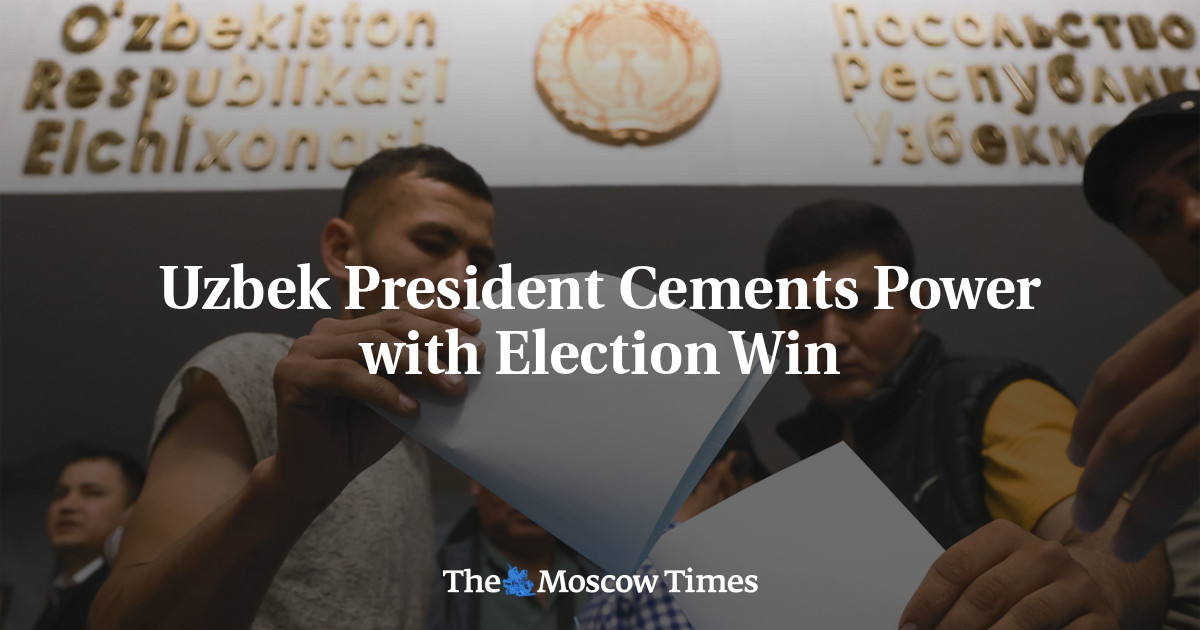
Uzbek President Shavkat Mirziyoyev has won a third term that will keep him in charge of the tightly controlled, gas-rich Central Asian state until 2030, the electoral commission said on Monday.
The 65-year-old has promised to open up Uzbekistan to foreign investment and tourism and implement major reforms in Central Asia’s most populous country.
Mirziyoyev, who was running against three largely unknown candidates, won Sunday’s election with 87% of the vote, according to preliminary results.
A former Soviet republic, Uzbekistan is strategically located between Russia and China and shares a border with Afghanistan.
Russian President Vladimir Putin congratulated him on a “convincing electoral victory” on social media.
The win “confirms your high political authority and points to the broad, popular support for your policy of large-scale reforms,” he wrote.
The two also spoke on the phone and discussed their “strategic partnership.”
Chinese leader Xi Jinping also congratulated Mirziyoyev in a phone call.
“Xi Jinping pointed out, in recent years, under our joint leadership, China-Uzbekistan relations have achieved breakthrough development, and cooperation in various fields has been comprehensively strengthened,” state broadcaster CCTV said.
Xi told Mirziyoyev he “very much cherishes the good working relationship and personal friendship with you,” CCTV added.
In May, Xi hosted Mirziyoyev and other Central Asian leaders for a summit in the northern Chinese city of Xi’an.
‘Lack of opposition’
Mirziyoyev previously served as prime minister under his hardline predecessor Islam Karimov before winning his first term in 2016 and getting re-elected in 2021.
A constitutional referendum this year paved the way for him to serve two more presidential terms and increased the mandate from five years to seven, meaning he could stay in power until 2037.
Mirziyoyev, who trained as an engineer, portrays himself as a reformer creating a “New Uzbekistan” and has said he wants to double gross domestic product to $160 billion (146 billion euros) soon.
He focused his re-election campaign on the economy and education.
He has ended the practice of forced labor in Uzbekistan’s cotton fields and released political prisoners jailed during Karimov’s quarter-century rule.
NGOs say human rights are better than under Karimov but there is still much to improve, and the authorities have shown no sign of allowing a real opposition to emerge.
The Organization for Security and Co-operation in Europe (OSCE) said the campaign has been “low-key, mirroring lack of opposition to the incumbent.”
In July 2022, protests erupted over a plan to remove the right to self-determination from the region of Karakalpakstan.
The unrest and subsequent crackdown in the poor northwestern territory left at least 21 people dead.